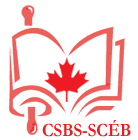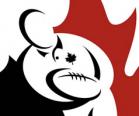Scott McKnight over at Jesus Creed has a thought-provoking post on “Writing — On the Side.” His comments resonate with my own thoughts, though I don’t find writing comes easy. Just this morning I was staring at my computer screen for far too long!
Category Archives: Old Codex Blog Posts
CSBS Ancient Historiography Seminar: Call for Papers
 The Ancient Historiography Seminar / Groupe de Travail sur l’Historiographie Ancienne of the Canadian Society of Biblical Studies invites papers on self-identification, community identity, and ethnicity in Judahite/Yehudite historiography for the 2007 Annual Meeting at the University of Saskatchewan, Saskatoon (May 27-29).
The Ancient Historiography Seminar / Groupe de Travail sur l’Historiographie Ancienne of the Canadian Society of Biblical Studies invites papers on self-identification, community identity, and ethnicity in Judahite/Yehudite historiography for the 2007 Annual Meeting at the University of Saskatchewan, Saskatoon (May 27-29).
Papers are invited to address a range of related questions, such as the understanding, presentation, and delimitation of “Israel” in various biblical texts, the relationship of Israelites to Judahites in Judean historical writings, the definition of Israel over against other peoples, the possible reasons why the ethno-religious community (“Israel”) was the focus of Judahite/Yehudite historiography, and the potential relationship of these issues to the Jewish-Samaritan controversy (at its earliest stages through the early part of the common era). Papers may approach the question from a variety of theoretical and disciplinary vantage points. For example, some may wish to pursue an inner-biblical perspective (Pentateuchal sources/writings, Former Prophets, Latter Prophets, Chronicles, Ezra, Nehemiah), while others may wish to pursue a cross-cultural comparative perspective (e.g., Ancient Near Eastern, Greek, Hellenistic and early Roman historiographies: Herodotus, Berossus, Manetho, Josephus; or be informed by non-Western historiographic traditions). Yet others may want to relate (or unrelate) the material remains to the question of community identity in northern Israel, monarchic Judah, and/or postmonarchic Yehud.
To be considered for our program, please submit a 250 word abstract to Ken Ristau (kar340 [at] psu [dot] edu) by December 1, 2006.
The Ancient Historiography Seminar / Groupe de Travail sur l’Historiographie Ancienne is a professional, academic working group of the Canadian Society of Biblical Studies / Société canadienne des Études bibliques (CSBS/SCÉB). For more information, please see our website.
Friedman on Humour in the Hebrew Bible
The Owings Mills Times has a small news report on a lecture Richard Friedman gave at a local synagogue. Here are some excerpts:
Friedman said it is difficult to get away from humor in the Jewish culture because it is part of the religion.
“It’s an integral part of our lives,” he said.
….
Jokes abound in the Torah, the five books of Genesis, Exodus, Leviticus, Numbers and Deuteronomy, Friedman said. The humor is especially obvious if the books are read in Hebrew. The Hebrew language lends itself to puns, he said.
The three pages of the Bible that are devoted to Jonah strike Friedman as the funniest. He said in Hebrew there are 35 puns in the story of Jonah.
The cast is composed of Jonah, who doesn’t want to do God’s bidding; a whale, who has to tote a poetry-writing prophet in his gut for three days and three nights, and a town full of repentants, people and cows who go around in sack cloth and ashes.
Jonah feels betrayed because he told the people they had 40 days to repent. God forgave them after only three days. After all, he did have his reputation as a prophet to consider, Friedman said.
Jonah leaves in a tiff, and goes to sit on a hill to sulk. In the end, Jonah learns a lesson about taking himself so seriously. The repentant people, not to mention the cows covered in ashes, are just as important as he is.
Friedman said jokes help people stay involved, whether they are attending a lecture or reading the Bible.
“Jokes are fun, they are a part of life, and they serve a purpose,” Friedman said. “They give comic relief when the lecture or book gets boring.”
I think that the humour in the Hebrew Bible is one of its most neglected features (see my previous post on this topic here).
Richard E. Friedman is the Davis Professor of Jewish Studies at the University of Georgia, and Katzen Professor of Jewish Civilization, Emeritus, at the University of California, San Diego. He has written a number of books, including Who Wrote the Bible? (HarperSanFrancisco, 1997; Buy from Amazon.ca | Buy from Amazon.com), The Hidden Face of God (HarperSanFrancisco, 1996; Buy from Amazon.ca | Buy from Amazon.com), and most recently The Bible with Sources Revealed (HarperSanFrancisco, 2005; Buy from Amazon.ca | Buy from Amazon.com). The latter is a translation of the first five books of the Bible — Genesis, Exodus, Leviticus, Numbers and Deuteronomy into English, differentiating textual sources by type styles and colors.
Research in Religious Studies Conference Call for Papers
This announcement will be of interest to all Albertan students studying religious studies, biblical studies, and theology. This is an annual student conference put on by the Religious Studies department at the University of Lethbridge. Note that this year the regional AAR/SBL meetings are being held at immediately following the student conference at the University of Lethbridge. I am hoping to bring a number of students with me to the conference this year and perhaps stay for the regional SBL meeting — I encourage you to do as well!
Call For Papers
5th Annual
RESEARCH IN RELIGIOUS STUDIES CONFERENCE
HIGHLIGHTING THE FINEST STUDENT RESEARCH
Thursday, May 3 – Friday, May 4, 2007
University of Lethbridge
Lethbridge, Alberta
The conference is an opportunity for undergraduate and graduate level students to present papers on the history, belief, practices, cultural contexts, and artistic or literary expressions of any religious tradition. Papers from every discipline within the academic fields of the humanities and social sciences are welcome.
It is open to students from any educational institute at any point in their educational career. Although we encourage PhD students to attend, we are particularly seeking papers by undergraduate and masters level students.
Paper Sessions: Papers will typically be given a maximum of 30 mins (20 mins for the presentation and 10 mins for questions). Papers will be organized according to basic topic areas (e.g. Hinduism, Biblical Studies, Mythology, etc.). Diverse topic areas will be scheduled into an open paper session.
Panels include a series of related papers and a single question period at the end, or responses by other contributors. You may propose a panel discussion, especially if you know other interested folk with a paper on a relevant topic (great for final year seminar courses). Contact Dr. J. R. Linville at the address below if you would like to help organize a special panel.
Poster Session: Whether you are presenting a paper or not, bring a poster highlighting your BA Honors paper, MA research (completed or planned), or other research project, and see if you can get some feedback. Posters will be prominently displayed and time will be scheduled to discuss the advertised projects with the folks who are willing to share ideas with those who are interested, curious, or just plain mystified.
Click here to propose a paper (deadline: March 23, 2007)
We will do our best to accept all deserving papers, but there is a limit to the number of papers we can accept. All proposals will be adjudicated by March 31, 2007. Late submissions will only be considered if schedule allows.
Presenters must pay the required registration fee to attend the conference.
FOR MORE INFORMATION OR TO DISCUSS PAPERS, SPECIAL SESSIONS, AND WHAT NOT, CONTACT:
Dr. James R. Linville
403-329-2537
james.linville@uleth.ca
Also, the Religious Studies Department at the University of Lethbridge also has a blog where you can get updates and more information.
2007 Rugby World Cup Tickets On Sale
 So, if you are thinking of buying me a Christmas present, you can always buy me some tickets to the 2007 Rugby World Cup since tickets go on sale today. Of course, you would have to buy me airplane tickets to France as well, since that is where the World Cup is being held next year.
So, if you are thinking of buying me a Christmas present, you can always buy me some tickets to the 2007 Rugby World Cup since tickets go on sale today. Of course, you would have to buy me airplane tickets to France as well, since that is where the World Cup is being held next year.
Team Canada will have an uphill battle since we will playing in Pool B along with Australia, Wales, Fiji and the winner of the top team from Asia. Australia will be the toughest challenge. I also like Wales, but that is more because I have Welsh heritage. Canada’s first game is against Wales in Nantes on 9 September 2007 and will then we play Fiji in Cardiff on 16 September, Asia 1 in Bordeaux on 25 September and Australia in Bordeaux on 25 September.
I can’t wait. Rugby is the best game in the world!
